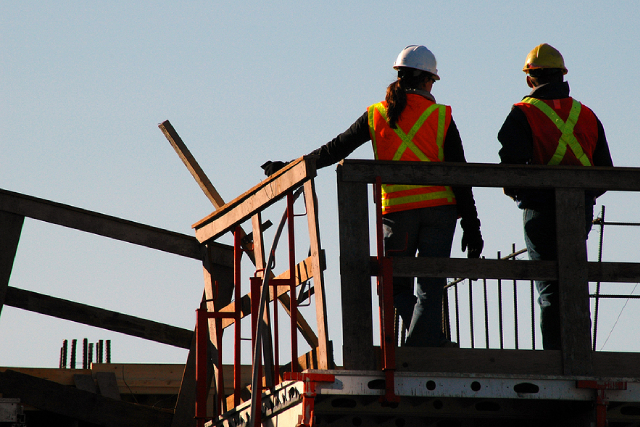4 Ways RFID Is Revolutionising The Construction Industry

The construction industry is no stranger to innovation, and the advent of Radio-Frequency Identification (RFID) technology is revolutionising the way projects are managed. RFID, with its ability to wirelessly identify and track objects using radio waves, is bringing a new level of efficiency and safety to construction sites.
In this article, we will delve into four ways RFID is making waves in the construction industry.
1. Enhancing safety
Safety is a top priority on construction sites, and RFID technology is playing a pivotal role in enhancing and ensuring the well-being of workers. RFID-enabled safety gear, such as helmets and vests, allows for real-time monitoring of employees’ locations and activities. In the event of an emergency or if a worker enters a restricted zone, the RFID system can quickly alert supervisors and trigger appropriate responses.
Moreover, RFID systems can be integrated into equipment and machinery, providing insights into their usage and maintenance schedules. This helps in preventing accidents caused by equipment malfunctions and ensures that equipment is serviced regularly, reducing the risk of on-site injuries.
2. Tracking tools
In the dynamic environment of construction projects, the efficient tracking of tools and equipment is crucial for maintaining productivity and preventing unnecessary delays. RFID tags can be affixed to tools, machinery, and other assets, allowing for real-time tracking and monitoring. This minimises the risk of tools being lost or misplaced, streamlining the construction process.
By implementing asset tracking systems, construction managers can easily locate tools, monitor their usage, and optimise their distribution across the site. This not only saves time but also reduces costs associated with tool replacement and downtime. Additionally, RFID-enabled tracking enhances accountability, as every tool’s movement is recorded, making it easier to identify and address any issues related to theft or mismanagement.
3. Managing inventory
Efficient inventory management is a critical aspect of successful construction projects. Traditional methods of inventory tracking, such as manual recording and spreadsheet management, are prone to errors and can be time-consuming. RFID technology provides a more accurate and streamlined solution for managing construction site inventory.
RFID tags can be attached to construction materials, allowing for automated and real-time tracking of supplies. This enables project managers to monitor stock levels, track the movement of materials, and receive automatic notifications when inventory needs replenishing. The result is a more efficient and organised construction site, where materials are readily available when needed, reducing downtime and preventing project delays.
4. Eliminating timecards
Timekeeping is an essential yet often tedious task on construction sites. Traditionally, construction workers clock in and out using manual timecards, leading to inaccuracies and potential disputes over hours worked. RFID technology simplifies this process by automating timekeeping through RFID-enabled badges or cards.
With RFID timekeeping systems, workers can easily swipe their RFID cards upon entering and leaving the construction site. This automated process ensures accurate recording of work hours, reducing the likelihood of errors and disputes. It not only streamlines payroll processes but also provides construction managers with valuable data on labour productivity, helping them make informed decisions to optimise workforce efficiency.
Conclusion
The construction industry is undergoing a significant transformation, and RFID technology is at the forefront of this revolution. From enhancing safety to improving inventory management and streamlining timekeeping processes, RFID is proving to be a game-changer for construction sites worldwide, helping businesses save money and time while increasing productivity. As technology continues to advance, it is essential for construction companies to embrace innovations like RFID to stay competitive, enhance efficiency, and ensure the success of their projects. Embracing RFID in the construction industry is not just a choice but a necessity for those who aim to build a safer, more efficient, and future-ready construction environment.